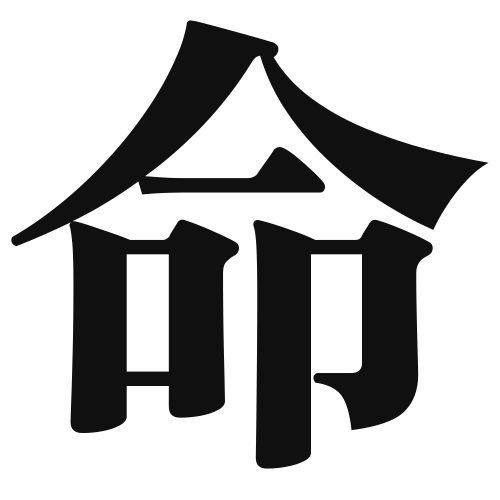1. Overview of Meaning
The kanji “命” (pronounced “mei” or “inochi”) primarily means “life” or “命” in English. It represents the concept of existence, vitality, and the essence of being alive.
2. Formation and Radicals
The kanji “命” is a phonetic-ideographic character (形声文字) that combines the meaning of “life” with a phonetic component. The left side of the character is the radical “口” (kuchi), which means “mouth,” while the right side “命” (mei) relates to the sound and meaning of life.
The radical “口” often relates to speech or communication, suggesting that life is expressed through words and interactions.
3. Examples of Usage
Common words and phrases that include “命” are:
- 命令 (meirei) – command, order
- 命運 (unmei) – fate, destiny
- 命がけ (inokigake) – risking one’s life
Example sentences in daily conversation:
- 彼は命がけでその仕事をしました。 (Kare wa inokigake de sono shigoto o shimashita.) – He risked his life for that job.
- 私たちは命を大切にしなければなりません。 (Watashitachi wa inochi o taisetsu ni shinakereba narimasen.) – We must cherish life.
4. Synonyms and Antonyms
Similar kanji with related meanings include:
- 生 (sei) – life, birth (focuses more on the act of living or being born)
- 命 (mei) – life (emphasizes the essence and value of life)
Antonyms include:
- 死 (shi) – death
5. Cultural and Historical Background
The kanji “命” holds significant importance in Japanese culture, often associated with the value of life and the concept of fate. It appears in various proverbs and idioms, such as:
- 命あっての物種 (inochi atte no monodane) – “As long as there is life, there is hope.” This proverb emphasizes the importance of life in achieving anything.
In Japanese culture, the reverence for life is deeply rooted, influencing art, literature, and philosophy.
